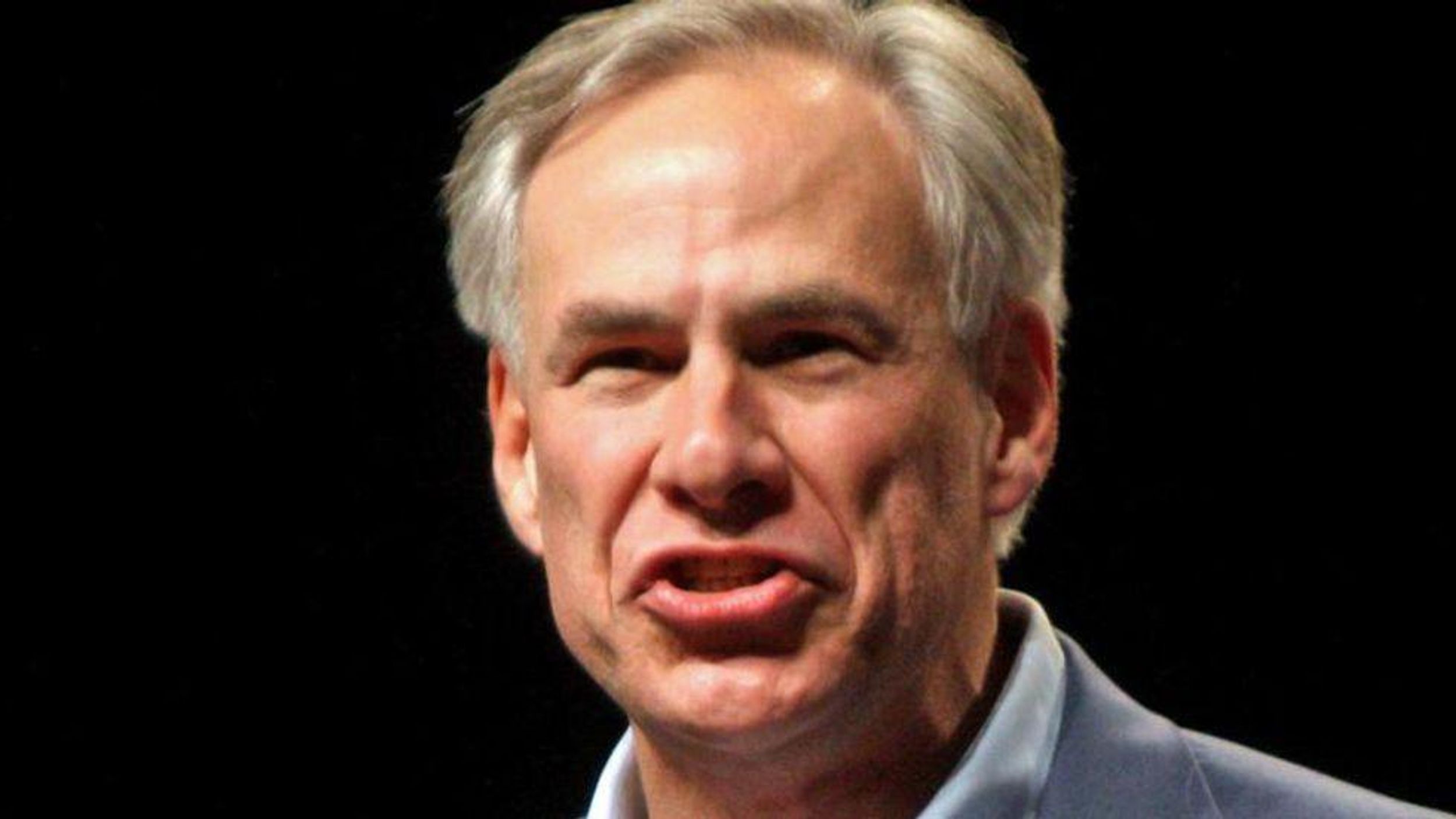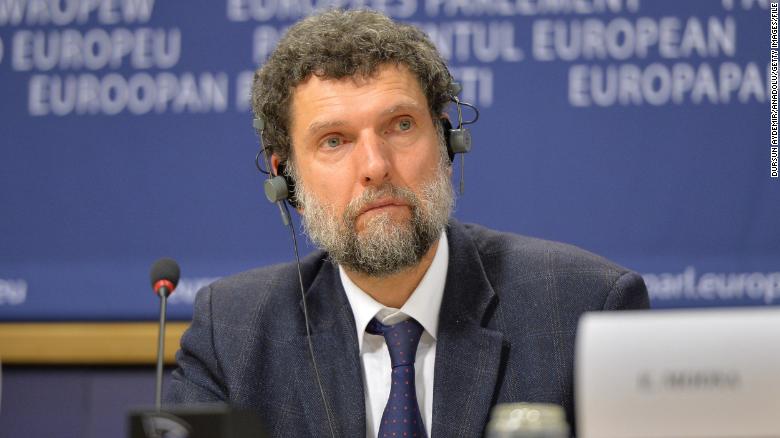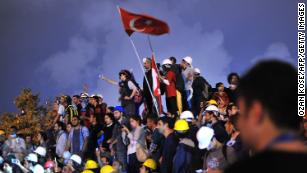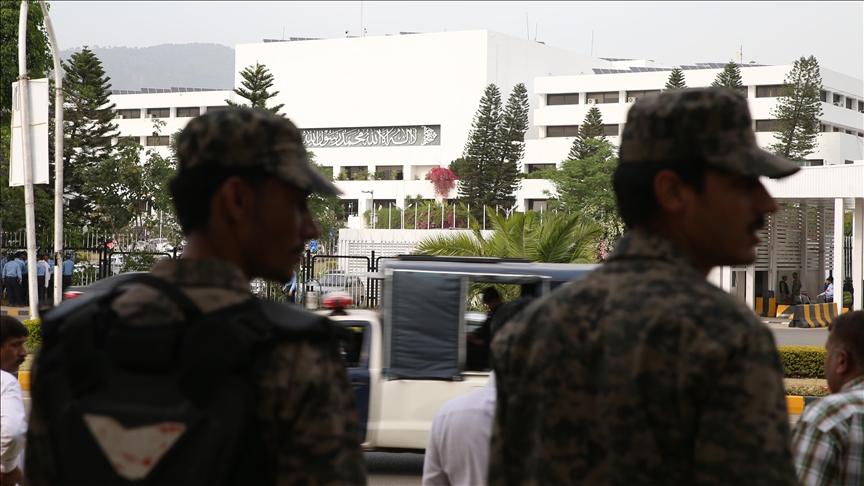Jameela Jamil quits Twitter after Elon Musk buys site for $44bn
Nicole Vassell
Mon, April 25, 2022,
Jameela Jamil has announced that she’s leaving Twitter after news that Elon Musk has purchased the platform.
The Tesla founder successfully acquired the social media site on Monday (25 April) for around $44bn (£34.5bn). As a result, Twitter will now be a privately owned company.
Hours before the announcement, billionaire Musk urged his “worst critics” to stay on Twitter.
Users of the site have been reacting to news of the sale, with some announcing that they’d be abandoning their accounts.
Former The Good Place actor and presenter Jamil has stated that she’d also be leaving the platform due to fears of how the environment will change under Musk’s ownership.
She sent a final message to her followers, attaching four photos of herself with her pet dog.
“Ah he got Twitter,” Jamil’s message began. “I would like this to be my what lies here as my last tweet. Just really *any* excuse to show pics of Barold.”
She continued her goodbye statement by sharing worries that Musk’s proposed bid to encourage free speech would lead to further harmful behaviour on the site.
She wrote: “I fear this free speech bid is going to help this hell platform reach its final form of totally lawless hate, bigotry, and misogyny. Best of luck.”
Jamil had previously hinted at her plans to stop using the site if Musk’s acquisition succeeded. Earlier on Monday, she tweeted: “One good thing about Elon buying Twitter is that I will *FINALLY* leave and stop being a complete menace to society on here. So it’s win win for you all really.”
Nicole Vassell
Mon, April 25, 2022,
Jameela Jamil has announced that she’s leaving Twitter after news that Elon Musk has purchased the platform.
The Tesla founder successfully acquired the social media site on Monday (25 April) for around $44bn (£34.5bn). As a result, Twitter will now be a privately owned company.
Hours before the announcement, billionaire Musk urged his “worst critics” to stay on Twitter.
Users of the site have been reacting to news of the sale, with some announcing that they’d be abandoning their accounts.
Former The Good Place actor and presenter Jamil has stated that she’d also be leaving the platform due to fears of how the environment will change under Musk’s ownership.
She sent a final message to her followers, attaching four photos of herself with her pet dog.
“Ah he got Twitter,” Jamil’s message began. “I would like this to be my what lies here as my last tweet. Just really *any* excuse to show pics of Barold.”
She continued her goodbye statement by sharing worries that Musk’s proposed bid to encourage free speech would lead to further harmful behaviour on the site.
She wrote: “I fear this free speech bid is going to help this hell platform reach its final form of totally lawless hate, bigotry, and misogyny. Best of luck.”
Jamil had previously hinted at her plans to stop using the site if Musk’s acquisition succeeded. Earlier on Monday, she tweeted: “One good thing about Elon buying Twitter is that I will *FINALLY* leave and stop being a complete menace to society on here. So it’s win win for you all really.”

Elon Musk's deal to buy Twitter for $44 billion raises concerns the platform will be subject to the capricious rule of the world's richest person.
(AFP/Patrick Pleul)
Glenn CHAPMAN
Mon, April 25, 2022
Elon Musk's vow to let everyone say whatever they want on Twitter after his takeover of the social media giant could put the onus on users to combat bullying and misinformation on the platform, experts say.
Details of Musk's plans for Twitter were slim after his deal to buy the tech firm was announced Monday, but the Tesla chief portrays himself as a free-speech absolutist.
But the privatization of Twitter with Musk as its master has raised concerns from analysts and activists that the site will be capriciously ruled by the world's richest man, with more focus on attention and profit than on promoting healthy online conversations, which has been a priority at the service.
For Syracuse University assistant professor of communications law Kyla Garrett-Wagner, Musk's takeover of Twitter is not a free speech rights victory.
"What we have done is put even more power into fewer hands," she told AFP.
"If Elon Musk decides tomorrow that he wants to shut Twitter down for a week, he can do that."
She noted the US Constitution's first amendment only bars governments from gagging what citizens say -- leaving the billionaire entrepreneur the power to decide what can and cannot be posted on the private entity of Twitter.
"This is not the street corner," Garrett-Wagner said. "This is the proverbial Wild West but owned by a minority elite that doesn't represent minority voices."
- 'The trolls take over' -
Musk's promised hands-off approach to content is a particularly thorny matter when it comes to high-profile cases like that of former US president Donald Trump, who was banned from Twitter after an assault on the Capitol by his supporters.
"Musk says he is going to turn Twitter into a social media platform with no moderation; there have been several of those and they don't work," said analyst Rob Enderle of Enderle Group.
"The trolls take over, they get too hostile and drive people away from the platform."
Musk has said he is averse to banning people from Twitter due to misbehavior, prompting speculation that he would lift Trump's ban.
But Trump on Monday said he would not be returning to Twitter even if his account were reinstated, saying he would stick to his own site, Truth Social.
- App store trouble? -
If Musk pulls back on policing content at Twitter, advertisers would also have to take the lead to ensure their messages were not associated with toxic content, according to advocates and academics.
"Accountability now rests with Twitter's top advertisers, who need to make it clear that if Twitter becomes a free-for-all of hate, extremism and disinformation, they will walk," said Media Matters for America chief Angelo Carusone.
"It is also critical that Google and Apple hold Twitter to the same standards they applied to other apps like Parler," he added, referring to a social network popular among conservatives.
The tech giants would need to reiterate that "Twitter will not get special treatment and that a violation of their terms of service will result in the platform being removed from the app stores," according to Carusone.
Musk will also face tough judgement in the court of public opinion, with Twitter users apt to turn away from the platform if it becomes hostile and flooded with misinformation, Garrett-Wagner said.
Some of Musk's own tweets have raised eyebrows, as he once mocked a Tesla whistleblower and in 2018 called a rescue worker who criticized a plan to save children from a flooded cave in Thailand "a pedo guy."
While Musk has talked about ridding Twitter of software "bots" that fire off spam, actually confirming that users are living people could prove challenging, Baird analyst Colin Sebastian told investors in a note.
Sebastian noted that Musk's idea of charging for coveted blue check marks that verify users' identities is a "no-brainer," but it is likely only a small minority of people would pay for the status.
Musk has also said he believes anyone should be able to scrutinize the software behind the service.
But that kind of transparency could come with the unintended consequence that it will just be exploited by "bad actors" who find ways to game the system to promote their posts, analysts have warned.
"The rhetoric around transparency is that it will lead to an epiphany and people will change," Garrett-Wagner said.
"It's a misleading comfort to think everything will be okay if we know how it is working."
gc/sw/caw
Glenn CHAPMAN
Mon, April 25, 2022
Elon Musk's vow to let everyone say whatever they want on Twitter after his takeover of the social media giant could put the onus on users to combat bullying and misinformation on the platform, experts say.
Details of Musk's plans for Twitter were slim after his deal to buy the tech firm was announced Monday, but the Tesla chief portrays himself as a free-speech absolutist.
But the privatization of Twitter with Musk as its master has raised concerns from analysts and activists that the site will be capriciously ruled by the world's richest man, with more focus on attention and profit than on promoting healthy online conversations, which has been a priority at the service.
For Syracuse University assistant professor of communications law Kyla Garrett-Wagner, Musk's takeover of Twitter is not a free speech rights victory.
"What we have done is put even more power into fewer hands," she told AFP.
"If Elon Musk decides tomorrow that he wants to shut Twitter down for a week, he can do that."
She noted the US Constitution's first amendment only bars governments from gagging what citizens say -- leaving the billionaire entrepreneur the power to decide what can and cannot be posted on the private entity of Twitter.
"This is not the street corner," Garrett-Wagner said. "This is the proverbial Wild West but owned by a minority elite that doesn't represent minority voices."
- 'The trolls take over' -
Musk's promised hands-off approach to content is a particularly thorny matter when it comes to high-profile cases like that of former US president Donald Trump, who was banned from Twitter after an assault on the Capitol by his supporters.
"Musk says he is going to turn Twitter into a social media platform with no moderation; there have been several of those and they don't work," said analyst Rob Enderle of Enderle Group.
"The trolls take over, they get too hostile and drive people away from the platform."
Musk has said he is averse to banning people from Twitter due to misbehavior, prompting speculation that he would lift Trump's ban.
But Trump on Monday said he would not be returning to Twitter even if his account were reinstated, saying he would stick to his own site, Truth Social.
- App store trouble? -
If Musk pulls back on policing content at Twitter, advertisers would also have to take the lead to ensure their messages were not associated with toxic content, according to advocates and academics.
"Accountability now rests with Twitter's top advertisers, who need to make it clear that if Twitter becomes a free-for-all of hate, extremism and disinformation, they will walk," said Media Matters for America chief Angelo Carusone.
"It is also critical that Google and Apple hold Twitter to the same standards they applied to other apps like Parler," he added, referring to a social network popular among conservatives.
The tech giants would need to reiterate that "Twitter will not get special treatment and that a violation of their terms of service will result in the platform being removed from the app stores," according to Carusone.
Musk will also face tough judgement in the court of public opinion, with Twitter users apt to turn away from the platform if it becomes hostile and flooded with misinformation, Garrett-Wagner said.
Some of Musk's own tweets have raised eyebrows, as he once mocked a Tesla whistleblower and in 2018 called a rescue worker who criticized a plan to save children from a flooded cave in Thailand "a pedo guy."
While Musk has talked about ridding Twitter of software "bots" that fire off spam, actually confirming that users are living people could prove challenging, Baird analyst Colin Sebastian told investors in a note.
Sebastian noted that Musk's idea of charging for coveted blue check marks that verify users' identities is a "no-brainer," but it is likely only a small minority of people would pay for the status.
Musk has also said he believes anyone should be able to scrutinize the software behind the service.
But that kind of transparency could come with the unintended consequence that it will just be exploited by "bad actors" who find ways to game the system to promote their posts, analysts have warned.
"The rhetoric around transparency is that it will lead to an epiphany and people will change," Garrett-Wagner said.
"It's a misleading comfort to think everything will be okay if we know how it is working."
gc/sw/caw














